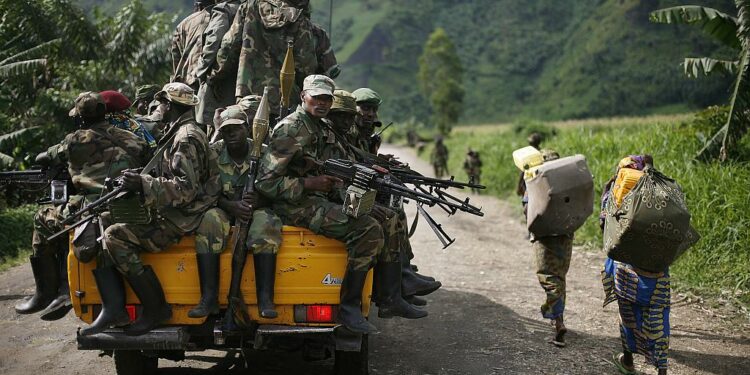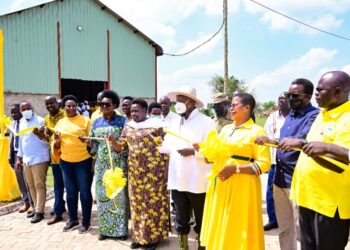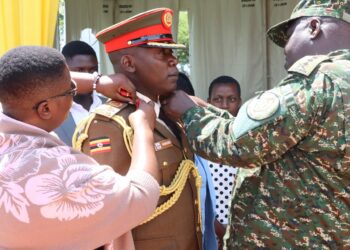Since last month, there has been a diplomatic feud between Rwanda and the Democratic Republic of Congo (DRC) as both sides accuse themselves of aiding armed rebel groups such as M23 that cause insecurity in the region.
At the end of May, the tension between the two countries kept on mounting to the extent that DR Congo suspended the operations of Rwanda Air in the country and they also arrested two soldiers from the Rwandan army. And according to the Congolese army, the two Rwandan soldiers were arrested because they had trespassed on its soils.
However, on the other side, Rwanda is also accusing the DR Congo government of working closely with the Democratic Forces for the Liberation of Rwanda (FDLR), a rebel group active in eastern DR Congo fighting the sitting government in Kigali.
Ever since Congolese President Felix Tshisekedi took office in 2019 he has been tirelessly trying to rebuild the relationship between the two countries however the recent fighting between DRC forces and M23 primarily the Congolese Tutsi group has rather increased the tensions.
Between Monday and today, hundreds of Congolese have staged an anti-Rwanda protest in the DRC capital Kinshasa, with demonstrators calling for the expulsion of the Rwandan Ambassador.
But who are the M23?
The M23 is derived from March 23 Movement and is often abbreviated as M23 and also known as the Congolese Revolutionary Army. This is a rebel military group based in eastern areas of DR. Congo mainly operating in the province of North Kivu.
The group was formed on 4 April 2012 with almost 300 rebels, the majority of whom were the former members of the National Congress for the Defence of the People (CNDP) a political armed militia group that was formed by warmonger General Laurent Nkunda. The M23 group was formed to fight against the DRC government due to poor conditions in the army and the government’s unwillingness to implement the 23 March 2009 peace deal. And its name was got from the date of these peace accords.
Under the accords, former CNDP fighters were supposed to have been integrated into the national army. But records allege that because some of them were not treated fairly, also the failure of the Congolese government to fully implement the peace treaty, caused many of them to defect from the army and formed the ‘M23 movement’.
According to DR Congo’s Government, the group in question was formed by General Bosco Ntaganda commonly known as ‘The Terminator’.
The group is made up primarily of Tutsis and opposes the Hutu Power militia Democratic Forces for the Liberation of Rwanda (a group that counts among its number the original members of the Interahamwe that carried out the 1994 Rwandan Genocide) as well as area Mai-Mai (community militias mostly created and supported by the Democratic Republic of Congo).
The group is currently led by two people; Bertrand Basimwa as the head or the President and General Sultani Makenga as the military Chief.
A few months after its formation it advanced to the outskirts of Goma on 18 November 2012 and warned the UN peacekeepers (MONUSCO) not to support government troops, its advancement led to the siege in which more than 2,000 Congolese soldiers and 700 policemen defected to the group. Currently, the group size is over 5,5000
The group has been internationally blamed for violation of human rights, intimidating journalists and also killing and raping women, especially in DR Congo.
Currently, the group now controls vast swaths of eastern Congo, an area rich in minerals. And according to many media reports and United Nations reports, this group is aided by Rwanda which shares borders with the eastern DRC. In one of the interviews with Al Jazeera’s Nazanine Moshiri, former members of M23 have revealed that Rwanda is supplying the rebels with weapons and ammunition.
Do you have a story in your community or an opinion to share with us: Email us at editorial@watchdoguganda.com













